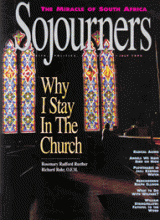The secondary literature available to the Catholic Worker movement is voluminous. When coupled with movement co-founder Dorothy Days copious writings, some may wonder why another book is needed on this lay movement that has so influenced the U.S. Catholic church.
But the question is too general, thereby missing the mark. Rosalie Riegle Troesters oral history of the Worker movement, Voices From the Catholic Worker, is an utterly singular contribution. Unlike most previous researchers, Troester cast her net far beyond the New York City Catholic Worker, interviewing 208 individuals from around the United States and Canada associated with the Catholic Worker. Troesters method levels the playing field, making room for the full range of voices that constitute a decentralized movement made up of independent lay communities. Catholic Worker scholarship will never be the same. Movement members here speak for themselves and wrestle publicly with the meaning of their faith, their movement, and their work.
Troesters interviews became 6,600 transcribed pages of text. Since only 7 percent made it in to what is still a sizable book (597 pages), we have here an unusual oral history, one with a heavier editing hand than is the norm. Moreover, a prominent section is presented as "roundtable discussions." Drawing on the intersections within her wide-ranging interviews, Troester presents "constructed conversations" among workers on issues like protest and resistance, the role of Catholic Worker farms, the meaning of community living, and feminism in the movement and the church. I found this creative technique a welcome respite from the dry dialogue that often marks the two-person interview format.
Read the Full Article
